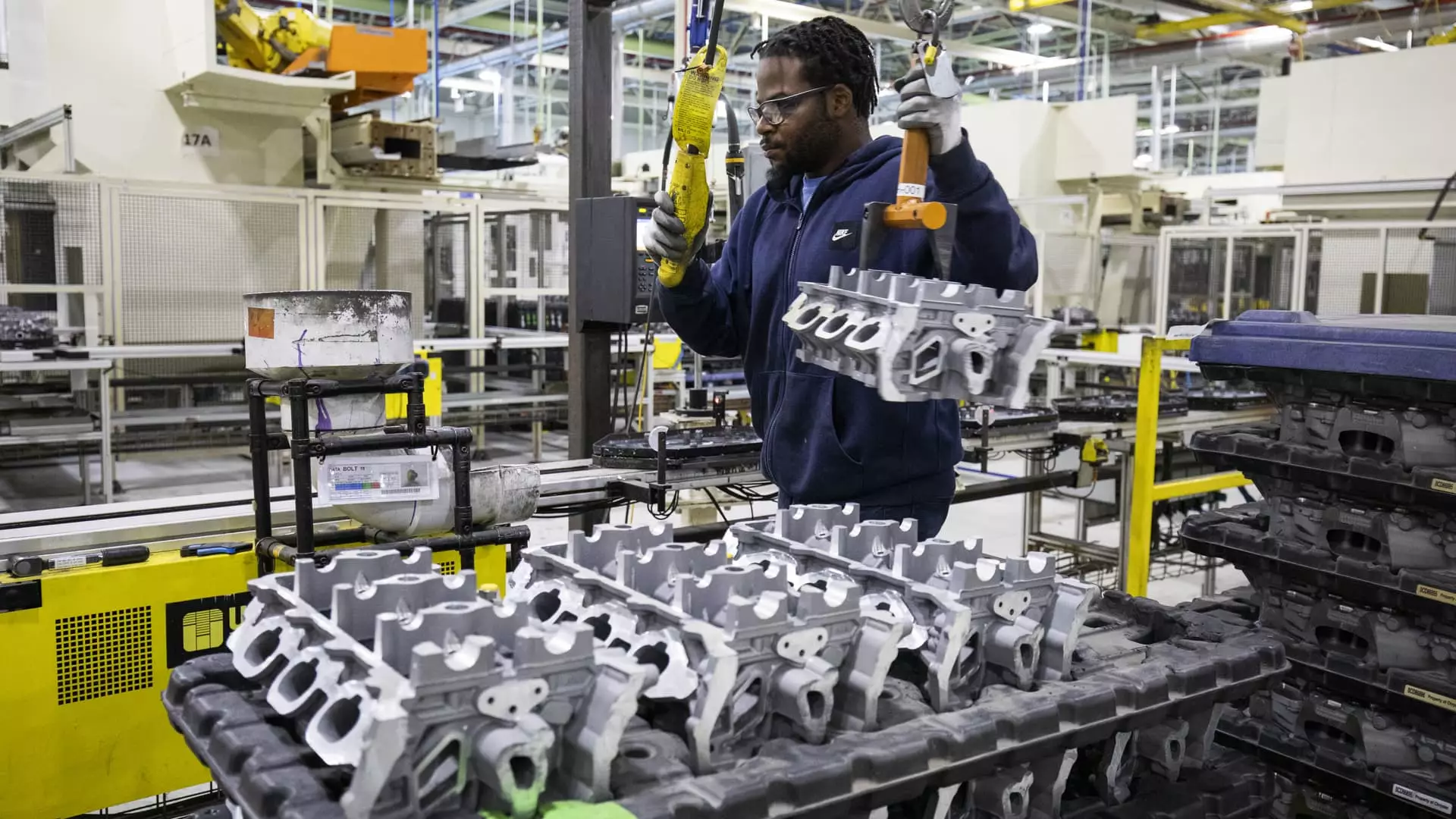In a rare show of solidarity, six prominent organizations representing the U.S. automotive industry have banded together in an urgent appeal to the Trump administration regarding impending 25% tariffs on imported auto parts. This unprecedented collaboration—from franchised dealers to major automakers—has brought to light the precarious state of the industry, revealing the urgent need to consider the repercussions on domestic production and employment. While political maneuvering is expected in such an atmosphere, the unity displayed signals a collective understanding that the stakes have never been higher.
The automotive sector is America’s largest manufacturing industry, contributing a staggering $1.2 trillion to the economy and providing 10 million jobs across all states. However, the impending tariffs threaten to jeopardize these figures, pushing suppliers, particularly those already in distress, to the brink. As laid out in a letter to administration officials, the warning bells are ringing; even a single supplier’s failure could have a catastrophic domino effect, halting production lines and leading to mass layoffs.
The Grim Reality of Suppliers in Distress
The letter, emphasizing the precarious financial situations of numerous auto suppliers, starkly elucidates that many are not prepared for sudden tariff-induced disruptions. As sentiments within the industry turn increasingly somber, the potential for bankruptcy, layoffs, and production stoppages has escalated. The situation mirrors the vulnerabilities exposed during the pandemic, showcasing a fragile supply chain that, if not managed thoughtfully, could spin out of control with widespread negative implications.
The truth is that the automotive industry operates on thin margins and complex logistics; a sudden increase in costs due to tariffs could render many firms incapable of operating sustainably. “Most auto suppliers are not capitalized for an abrupt tariff induced disruption” serves as a sobering acknowledgment of reality that many in power appear blissfully unaware of. The administration’s decision to impose these tariffs deserves scrutiny, as it risks amplifying existing vulnerabilities within the supply chain.
The Ripple Effect: More Than Just Automakers
While many might assume that the tariffs primarily affect automakers, the situation accedes far more complexity. Various experts have warned that the repercussions could lead to an industry-wide fallout that transcends the likes of Ford or GM. As noted by auto executives, the impacts of these tariffs could result in millions of lost vehicle sales, soaring costs for both new and used cars, and a shocking $100 billion increase in overall industry expenses.
What is distressing is that this situation could stymie America’s path toward electric mobility—a source for hope in a significantly transforming automotive landscape. The failure to recognize the interconnectedness of various components within the supply chain could pose dire repercussions for the future innovation capabilities of U.S. automakers.
Government Responsiveness: A Double-Edged Sword
President Trump has alluded to a willingness to reconsider these vital tariffs, drawing parallels with the recent relief granted to consumer electronics and semiconductors. While this may signal a flicker of hope to beleaguered automakers and suppliers, one must question the feasibility of simply “delaying” the inevitable financial burdens imposed by tariffs. The messy intricacies of global supply chains cannot be resolved overnight, and the notion that such a transition can happen within mere months is not only overly optimistic but also a severe misunderstanding of economic realities.
Industry insiders have echoed concerns over how severely disrupted supply chains could stifle growth, innovation, and job security, particularly in a landscape already navigating the challenges of post-pandemic recovery. The prospect of aiding auto companies in sourcing their component parts closer to home is praiseworthy, but acknowledging the logistics involved is crucial to implementing any successful policies.
A Call for Strategic Planning Over Quick Fixes
With the automotive sector standing at this crossroads, it is vital for both government and industry leaders to recognize that appropriate strategies need to be devised to navigate these turbulent waters. While tariffs may initially seem like a tool for national interest, failure to consider the potentially disastrous ripple effects will lead to severe consequences.
A comprehensive plan focusing on adapting supply chains, supporting manufacturers, and embracing innovation must replace reactive policies, urging decision-makers to engage with industry voices. In the end, the necessity for prudent governance becomes clear: neglecting the realities faced by the automotive manufacturing sector runs the risk of irrevocably harming an industry pivotal to the U.S. economy.

